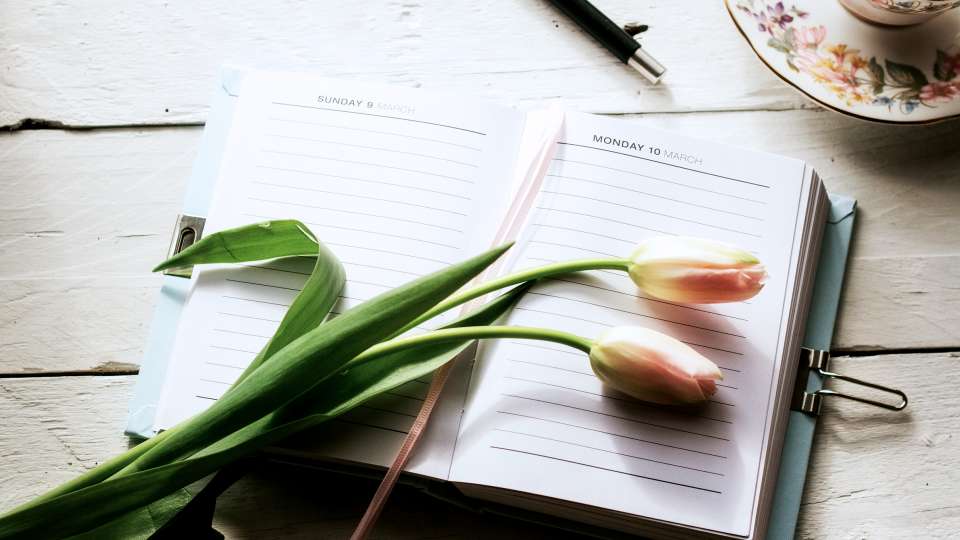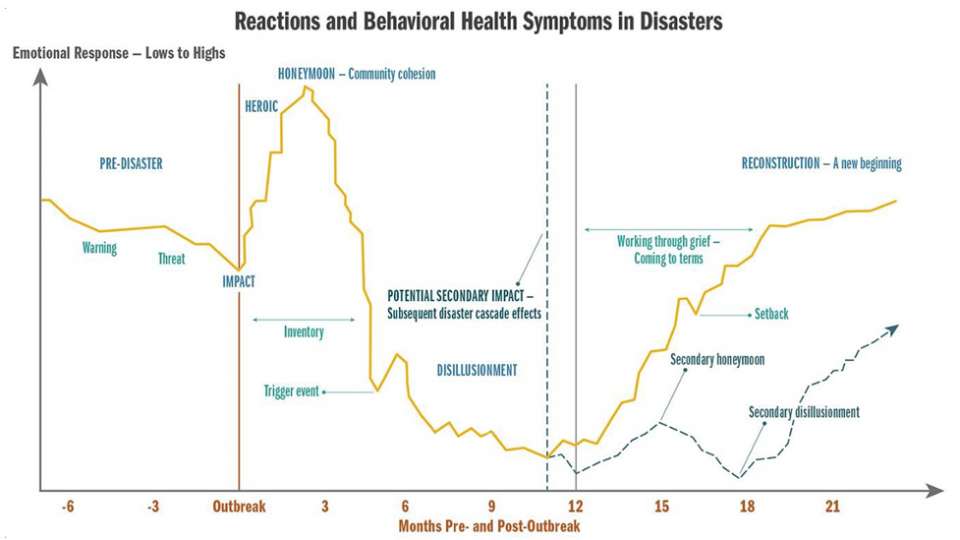COVID-19 Anniversary Reaction: What It Is and How to Cope

Over the course of this past year, we’ve found ways to cope with the changes brought by COVID-19, be it juggling work and child care, weathering financial insecurity or dealing with uncertainty.
As we approach the one-year mark since the World Health Organization designated COVID-19 a pandemic, however, you may be experiencing an anniversary reaction, or renewed feelings of sadness, irritability and anxiety.
“I anticipate people reexperiencing some of the grief that came with the loss of moments they had been looking forward to in the year,” says Anne Browning, assistant dean for Well-Being at UW Medicine.
To help you navigate these emotions, UW Medicine experts share anniversary reaction coping methods and ways to promote healing and resilience.
What is an anniversary reaction?
An anniversary reaction is a common psychological response to a big, often traumatic event that has happened in your life. As the name suggests, this reaction occurs on or around the anniversary of the impactful event.
“They are periods of time when you experience potentially intense emotions, a loss of feeling connected to others and difficulty with your routine,” says Dr. Jennifer Erickson, a board-certified psychiatrist who sees patients at UW Medical Center and UW Neighborhood Clinics.
These responses are characterized by an increase in emotions like grief, guilt, frustration and anger, as well as heightened reflection, dreams and memories about the event and, in some cases, an attempt to avoid the subject altogether.
If it sounds like there’s a wide range of anniversary reactions, it’s because there is.
“Anniversary reactions run a continuum,” Erickson says. “Some people may never have one. On the other extreme end, for some people an anniversary reaction could start a major mood response and could require psychiatric care or medicine.”
Most people will fall somewhere in the middle of this spectrum, feeling a sense of sadness or restlessness for a couple days before or after the anniversary.
In the case of COVID-19, anniversary reactions will also vary based on each individual’s unique experiences with the pandemic.
“We’re all in the pandemic, but we experience different things depending on what industry we are in, where we are living, what our job consists of and what we have to do to survive right now,” Erickson says.
Why do anniversary reactions occur?
Anniversary reactions, particularly those that are tied to a specific date, like a natural disaster or the death of a loved one, can be prompted by the calendar.
The date itself can bring up painful memories of the event, and if it was a national or global tragedy, increased media coverage may intensify any apprehension you are feeling.
Our reactions to these anniversaries are also caused in part by how our bodies take in and process information.
“When we have big things happen to us that are traumatic, the body holds on to all the things related to that experience, such as what you were doing, where you were and what the day was like,” Erickson says.
This combination of the date and our bodies associating environmental factors like time of day, season, location and weather to the traumatic event all contribute to an anniversary reaction.
How do you prepare for the anniversary of a traumatic event?
As you approach the anniversary, it helps to acknowledge that the event itself was difficult and give yourself grace for any emotional response you may have now.
“Do your best to avoid guilt or shame related to feeling or having an anniversary reaction,” Erickson says. “Whatever you are feeling is absolutely legitimate, and it’s important you acknowledge those emotions, because they are real.”
In regard to the pandemic, Browning recommends taking time to reflect on your past year, both the good and the bad. Noting what has happened allows you to acknowledge the positive things while simultaneously holding space for what has been difficult.
You can also create a “mental health kit” ahead of time, so you have support in place in case things get tough.
This could mean planning to call a loved one on the day, taking the day off work, scheduling activities to keep you busy, getting into nature or doing something nice for yourself, like buying some takeout, cuddling your pet or practicing meditation.
How do you cope with anniversary reaction?
Experiencing an anniversary reaction is difficult, but there are ways to move through it. Here’s how.
Name it
Putting words to what you are feeling helps.
Acknowledge whatever emotions come up and label them for what they are: an anniversary reaction.
Utilize your mental health kit
Remember the kit you created? Now is the time to draw on those resources.
Erickson also recommends mindfulness techniques, cognitive behavioral therapy (CBT) methods and meditation.
Avoid comparison
“Give yourself permission to not get stuck in comparison,” Browning says.
While easier said than done, try your best to not judge how you are coping based on how others are managing their own grief. Remember: whatever you are feeling is valid.
Ask for help
It’s OK and important to seek help if you need it. Sharing how you are feeling with a loved one or mental health expert can help you feel less alone.
And if you are struggling to do daily tasks or experiencing suicidal thoughts, reach out to a doctor for support.
Give yourself grace
Anniversary reactions are normal and accepting any emotions you experience — even if they’re messy or you feel out of control — can make it easier to let the response pass.
More than this, allowing yourself to move through these emotions can help with the healing process and bolster resilience.
“Remind yourself that this is time limited,” Erickson says. “You were doing well before and will most likely be doing well again. Today is just a rough day; give yourself the grace to pass through it.”
The info in this article is accurate as of the publishing date. While Right as Rain strives to keep our stories as current as possible, the COVID-19 pandemic continues to evolve. It’s possible some things have changed since publication. We encourage you to stay informed by checking out your local health department resources, like Public Health Seattle King County or Washington State Department of Health.

 Healthy ideas for your inbox
Healthy ideas for your inbox






